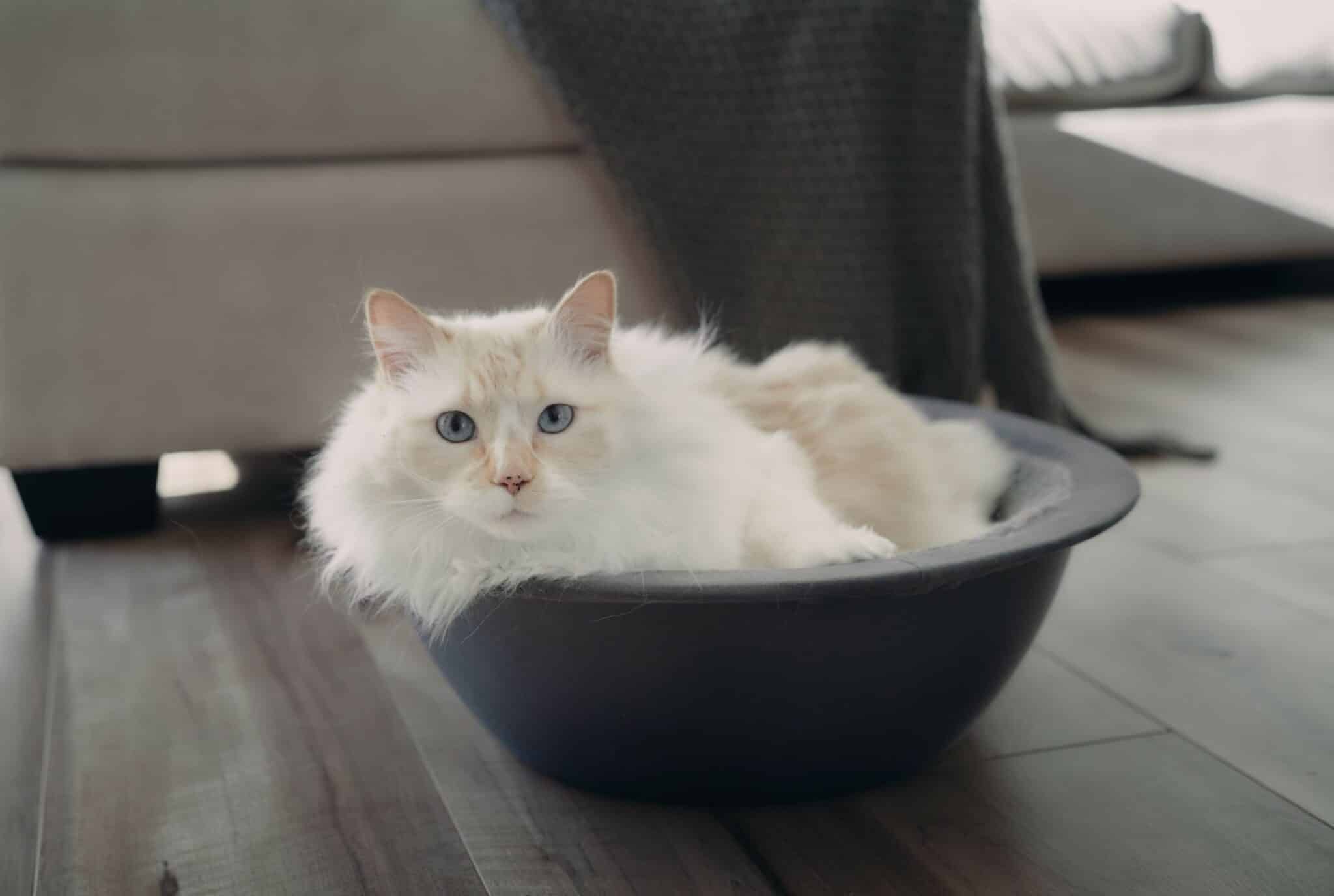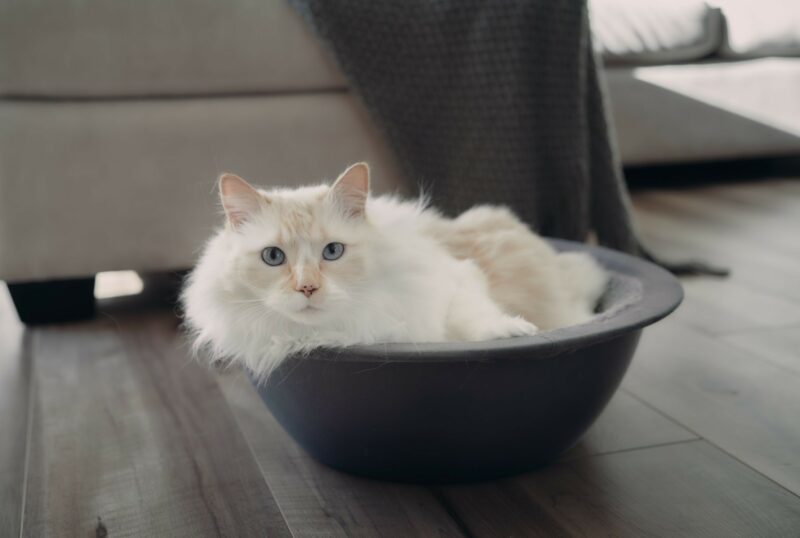If you’ve owned cats for any length of time, you know that a bored cat is a mischievous cat. That’s why it’s so important for us to ensure our space is enrichment-inducing and entertaining. The last thing you want is a cat that resorts to tearing up your furniture or sleeping all day simply because there’s nothing else for them to do to pass the time. If you’re looking to create the perfect cat utopia for your pet, we can help.
Read on to find our tips on making the most entertaining space to keep your cat happy (and you sane).
Top 5 Tips on How to Design The Perfect Place For Your Feline
1. Get a Cat Tree
Cat trees are a splurge that we consider almost non-negotiable. While some owners can create a cat utopia without buying a tree, they’re certainly a convenient way to ensure many of your pet’s needs are being met with a single product. Quality cat trees generally don’t come cheap, but they’re worth the splurge if you can swing it with your budget.
Cats naturally seek out high vantage points, a desire that is essentially coded into their DNA. Your pet’s wild ancestors retreated to high places to stay safe from potential threats like eagles or coyotes while keeping an eye out on their territory. Though your kitty doesn’t need to worry about getting snatched by an eagle, they still seek high ground to spot “prey” (their fluffy balls and fake mice toys) and satisfy their natural curiosity.
Cat trees are often outfitted with fun accessories like dangling ball toys for playing, cat condos for napping, perches for monitoring their environment, and scratching posts for scratching. The latter brings us to our next point.
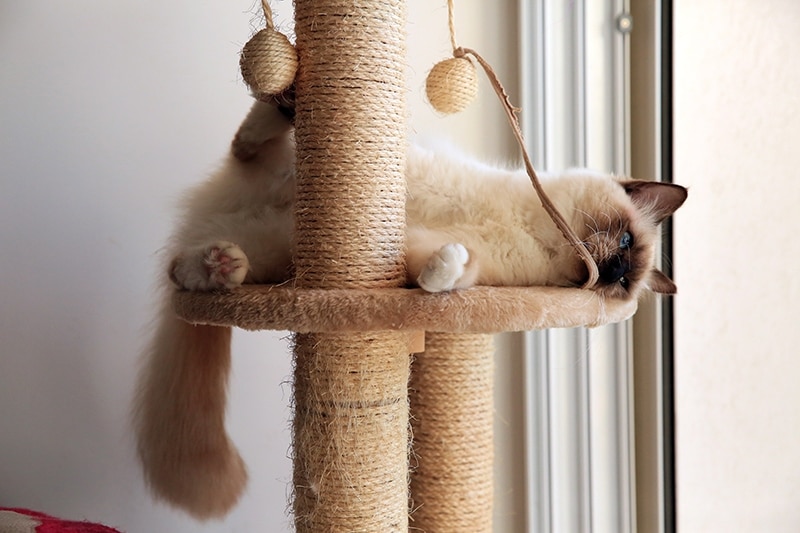
2. Provide Scratching Posts
Cats need places to scratch to not only keep their nails in tip-top shape but also to mark their territory and exercise. The sweat glands between your kitty’s toe beans produce a unique scent that, when scraped down a surface, tells other cats, predators, and prey that the object scratched upon belongs to your kitty. Stretching and scratching exercises a cat’s forelimbs and spine to keep them in tip-top shape for all their daily tasks, like hunting their toys and chasing lasers.
Without access to dedicated scratching posts, your kitty may turn to sharpening their nails on your favorite piece of furniture or even your walls.
It’s important to note that some cats prefer scratching horizontally while others only do so vertically. You may need to try different post types and configurations to find which your pet likes.
3. Provide Window Access
Offering a window perch or seat for your kitty gives them a view of the outside world and all of the interesting things that come with that. With all the action outside – birds, cars, dogs, mail carriers, etc. – there’s certainly no shortage of things going on to keep your cat entertained. You don’t need to invest in a suction cup window perch if your budget doesn’t allow for it at this time; even just pulling up a chair to the window will keep your cat intrigued. If you have a cat tree already, you can place it near the window so your cat can kill two birds with one stone: being high and looking outside.
This tip does come with a caveat, however: not all cats enjoy knowing what’s going on in the world outside and can become quite distressed when given the option to look out. If you find that having window access is stressing your cat out, we recommend keeping the blinds or curtains closed to prevent behaviors that often accompany stressed and anxious kitties.
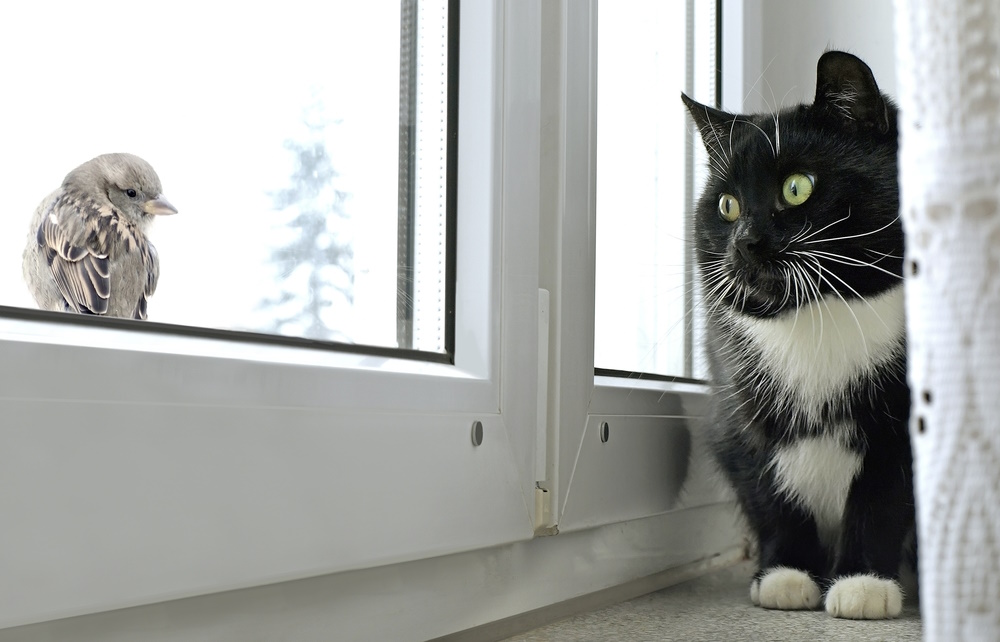
4. Create a Kitty Safe Zone
Your cat must have a place to call their own, especially if you have a multi-cat household or live with children. It’s even more important if you have a multi-species household and your cat is constantly being bugged by an over-zealous dog that doesn’t know boundaries. Your kitty safe zone should be your pet’s refuge, a place where they can retreat to get away from all the stimulation in their environment.
The type of safe area your pet will prefer will depend entirely on your kitty. Some are happy to be given a cardboard box in the middle of the living room, while others need something a little more private. You know your cat’s personality best, so consider that when determining where your designated safe zone will be.
5. Build or Buy a Catio
If your cat loves looking outside and is infinitely curious about the outdoors, but is predominantly an indoor cat, you might consider building or investing in a catio. A catio is a portmanteau of “cat” and “patio” which provides your kitty with an enclosed and safe place to spend time outside. They’re often placed next to windows, so all you need to do is open the window to allow your pet access to their special outdoor sanctuary. Catios can expand your cat’s world by even just a little bit, providing them with the enrichment and enjoyment of being outdoors while keeping them (and your backyard birds) safe.
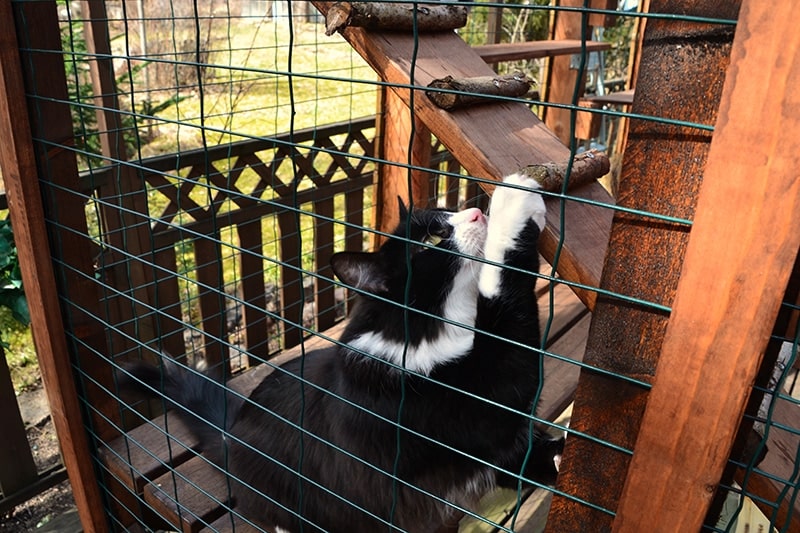
6. Put Toys on Rotation
Cats are highly intelligent and can get bored of playing with the same old toys every day. We recommend having a small stockpile of toys you can rotate in and out on a weekly basis to keep them interested in playtime.
While we’re on the topic of toys, make sure you’re providing a mix of traditional and interactive options in your rotation. Interactive toys are great as they give your kitty the opportunity to play even when you’re not home actively enforcing it. Some like motion-activated options that wiggle when touched, while others prefer tunnels or ripple mats. Like scratching posts, you may need to try several different toy types to find the ones your cat really likes.
Our Favorite Cat Toys Right Now Here are a some of our favorite toys, each catering to a variety of senses and play preferences. Which one will your feline fancy? At Catster, we've admired Hepper for many years, and decided to take a controlling ownership interest so that we could benefit from the outstanding designs of this cool cat company!
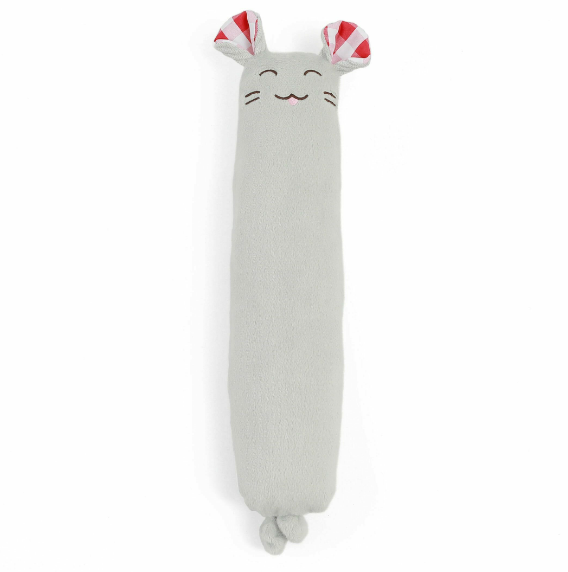
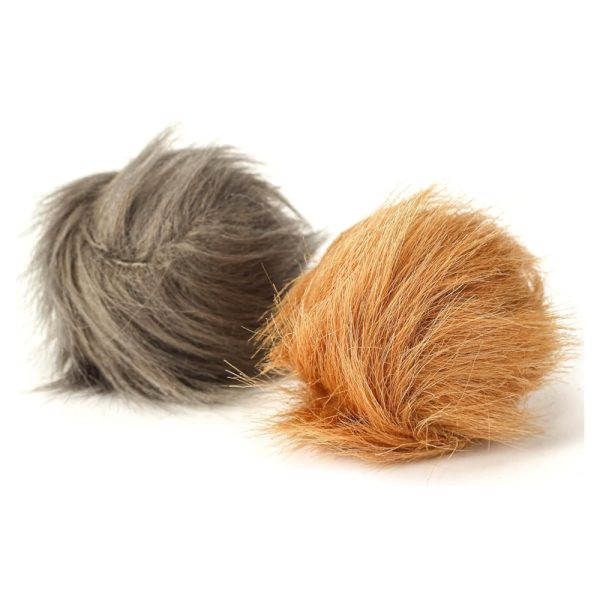
Hepper Plush Mouse Kicker Toy
Hepper Furball Toy Set
Multisensory
Encourages self play
Large
Durable
Lightweight
Set of 2
7. Create a Climbing Wall
You already know that cats love being high, so if you want to encourage your kitty to explore new heights, we highly recommend creating a climbing wall. The possibilities with this are quite literally endless. You can find wall-mounted cat ladders, stairs, bridges, kitty condos, and perches online and configure them into a design that works best within your space.
It is of utmost importance, however, that the components are sufficiently anchored and capable of handling your cat’s weight.
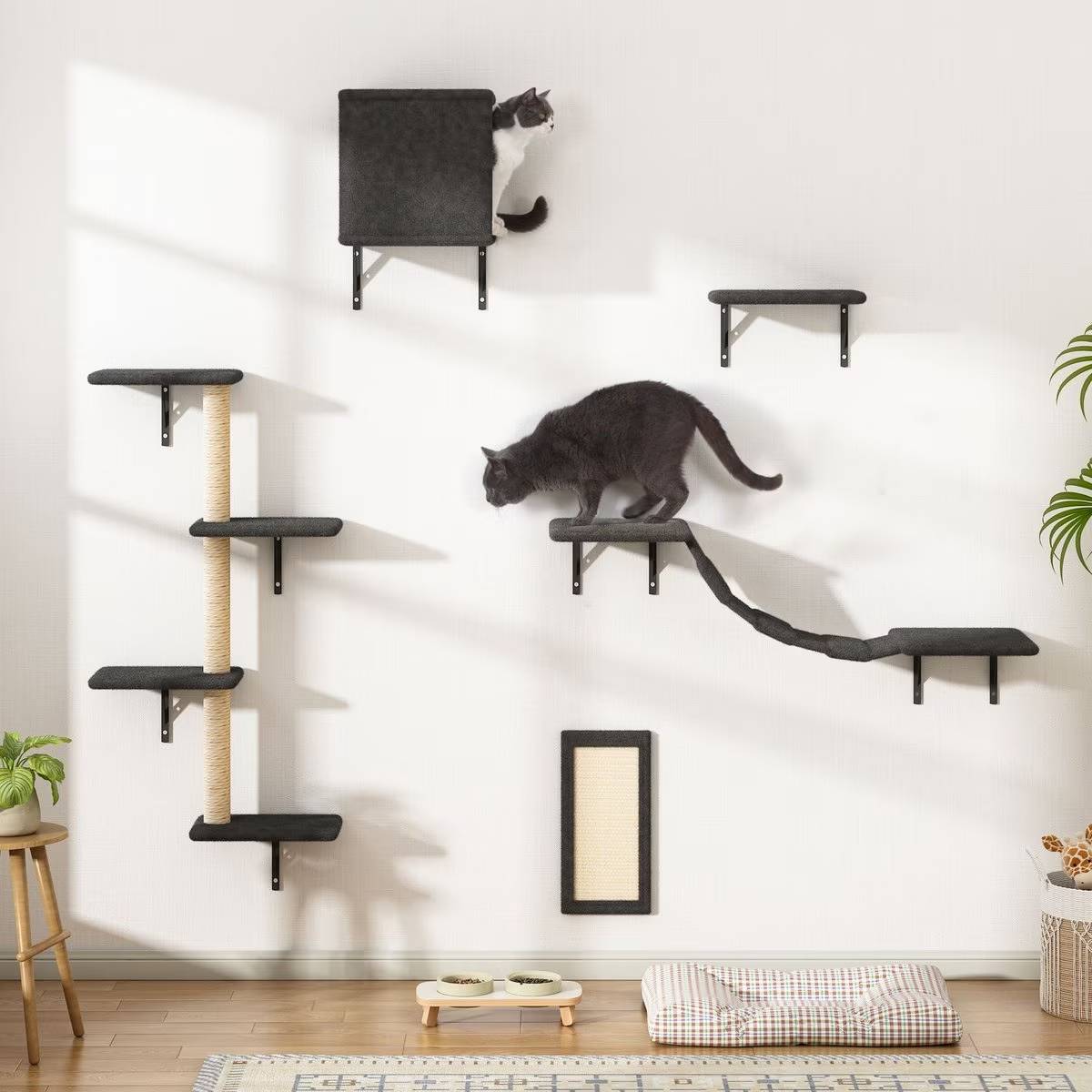
8. Grow Cat-Safe Plants
Houseplants can certainly spiffy up your space, but not all of them are safe to grow in a cat-friendly household. So, if you want to provide your kitty with a cat utopia, consider growing cat-safe plants specifically for them. Some of the best options include catnip, valerian, cat thyme, and cat grass.
Do note, however, that if you’re allowing your kitty to nibble on these plants freely, you may wish to hang your non-edible plants far out of your pet’s reach to ensure they don’t have a free-for-all on all the plant material in your home.
9. Provide Cozy Sleeping Spots
Cats spend a good portion of their day sleeping, so it only makes sense that your utopia should include several cozy places for them to rest their heads for a cat nap. Invest in cat beds that cater to your cat’s age, size, and health status.
For example, older cats with joint issues may benefit from orthopedic beds. These have thick foam and padding that’s supportive for seniors and are easy to get in and out of. If your cat is always lying on your heat vents during the winter, you might consider a self-warming bed. These are made with specific materials designed to reflect your pet’s own body heat back to them. If they’re a real heat seeker, we recommend heated beds that you can plug in.
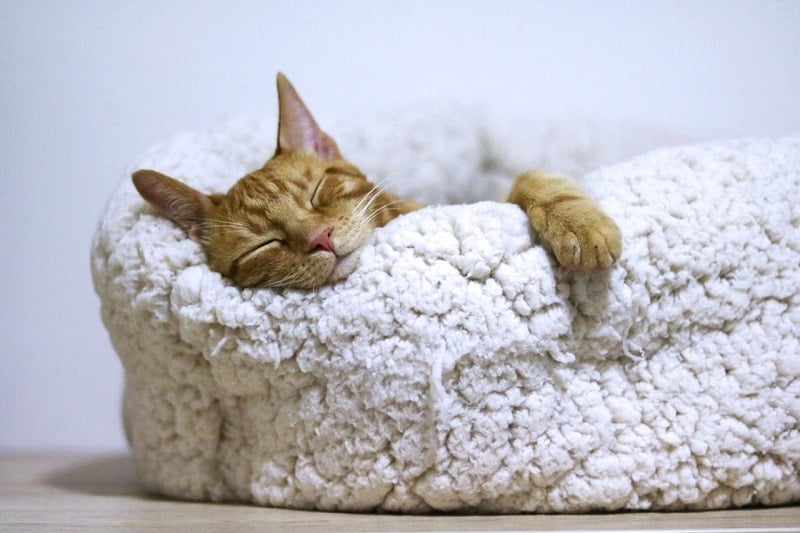
What Are the Signs of a Bored Cat?
Since our cats can’t obviously whine, “I’m bored!” at us like our children can, it may be difficult for some owners to know whether their pet has enough enrichment. Don’t worry, though. A bored cat will tell you it’s not entertained. Some of the most common signs to look for include:
- Incessant meowing
- Pacing
- Uncontrollable urination or marking
- Excessive grooming
- Lack of interest in toys
- Overeating
- Undereating
- Sleeping more than usual
- Destructive behavior
Final Thoughts
Your cat deserves to live in a space that’s set up for them to mentally and physically thrive. When you put some effort into creating a cat utopia, you’re not only ensuring your kitty won’t get bored and destructive, but you’re ensuring they stay happy and healthy. You don’t need to spend a fortune all in one go to create your kitty sanctuary, either. Small investments, when you can afford them, will go a long way in providing happiness and enrichment for your furry family members.
Featured Image Credit: Hepper.com
Contents
- Top 5 Tips on How to Design The Perfect Place For Your Feline
- 1. Get a Cat Tree
- 2. Provide Scratching Posts
- 3. Provide Window Access
- 4. Create a Kitty Safe Zone
- 5. Build or Buy a Catio
- 6. Put Toys on Rotation
- 7. Create a Climbing Wall
- 8. Grow Cat-Safe Plants
- 9. Provide Cozy Sleeping Spots
- What Are the Signs of a Bored Cat?
- Final Thoughts

